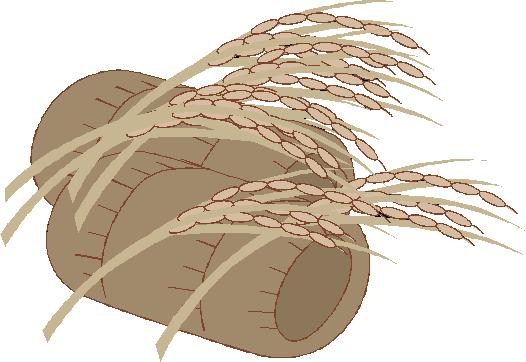[October: Ancient and Modern
]
How did you like studying ancient history in school?
In my school days, I was not much interested in excavated ruins, artifacts or skeletons.
Never cared where we came from, or who we were before or what we did.
Modern history attracted me more than ancient peoples and culture.
Last summer, I was a frequent visitor to the Matsuyama Archaeology Museum doing research for my volunteer work as a museum guide.
The museum houses 600 artifacts discovered in sites located across the Matsuyama plains,
the most ancient pieces dating from the Old Stone Age, approximately 20,000 years ago. The small museum has a relaxing atmosphere,
and I saw some local residents drop by simply in order to buy cold beverages from the drink machine in the lobby.
But in the exhibition room, there was no one but me, and the woman receptionist answered the questions I had
about the displays with more enthusiasm than I expected. For weekend guide practice,
we had a guest from Portland, Oregon. Hanging a hand-colored "Fundo-kun" museum mascot character around my neck,
I briefly talked about the Jomon and Yayoi periods' timelines. Jomon literally means "rope-pattern decoration"
and Yayoi is named after the neighborhood of Tokyo where archeologists first uncovered artifacts and features from that era.
I had to talk a lot about the museum's earthenware collection because pottery played such an important role in Jomon and Yayoi culture.
Researchers say the Jomon people were one of the first cultures to make and utilize earthenware for cooking.
Amazingly, the Jomon period lasted 10,000 years, and there is no evidence wars were ever fought during this time. Our guest had a great deal of interest
in architecture and Japanese culture, and he listened closely to how these ancient people mourned their dead.
We also shared stories about his father-in-law, a Japanese farmer, and things my mother told me before she passed away.
How about a little archaeology this autumn? The museum will reopen following renovation after 11/30.
(Kazuyo Kajiwara)
Recently one of my essays was about to be censored for being, in the word of the editorial staff, "inappropriate".
Afterwards, they told me that the topic I'd chosen to write about was inconsiderate toward readers
and should not have been published here in the Outloud column of the WGO? website.
The chief editor of Outloud has prompted us to write about various topics in English.
I'm impressed by his knowledge and his ability to perceive writers' nuanced meaning sometimes lost in their translations
from Japanese to English. Owing to his encouragement, this novice writer has come to think more objectively and even develop viewpoints.
But when is it okay to write about an unpleasant aspect of our own society?
Would it cause upset among those who read the essay? Let me give you an example.
One day a boy and his mother were walking along the Castle moat.
"Mom, look, swans!" He cried pointing at the birds gliding across the surface of the water.
His mother smiled, "Yes, they look so elegant, don't they? But their webbed feet are ceaselessly moving underwater."
She imitated the swan's paddling motion with her hands. He asked, "Do they live here?"
"Uh-huh," she answered. "Sadly, they cannot fly off." Why not?" the boy asked.
"Because their wings have been clipped so they can't fly away. An operation was performed on the birds so they can't fly."
Would the boy be traumatized by his mother's words? Or would he simply learn something about the lives of swans
and perhaps become more aware of cruelty to animals? I don't think his mother's explanation would hurt his feelings.
The staff who wanted to censor my article might have answered as follows.
"It's fine to write about swans' beauty. However, what is done to the swans by city administration should not be mentioned
in case readers should become so uncomfortable with the swans' plight,that they would no longer want to walk along the moat."
I'm thankful to the editorial staff for their devotion in publishing this newsletter.
Like the swans, the final result of their volunteer work depends on lots of unseen effort.
However, they should remember each writer has a right to choose his or her topics.
(Miwa N.)
|


